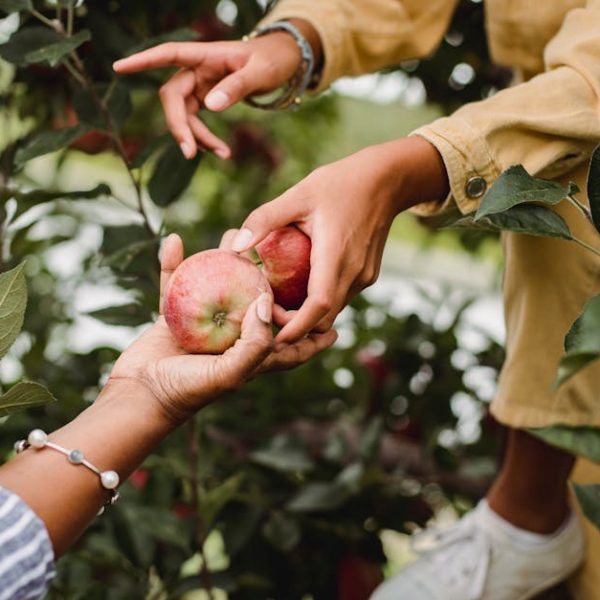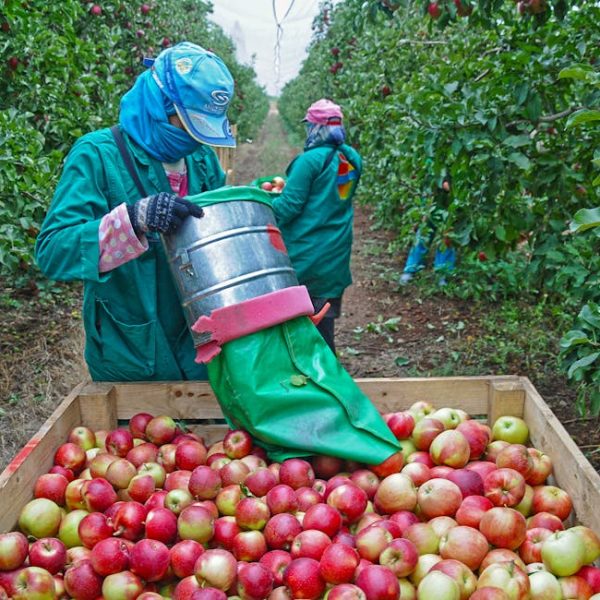There’s something magical about a flourishing garden thriving amid the crisp, cool air of fall. This time of the year offers an inviting change of pace for gardeners, allowing them to plant a variety of herbs that flourish throughout the autumn months and beyond. The key is harnessing the unique conditions of the fall season to set the stage for hearty, robust herbs.
Understanding the Benefits of Planting Herbs in Fall
Many gardening enthusiasts may be unaware of the distinct advantages involved in fall gardening. This season’s cooler temperatures combined with warm soil create ideal conditions for certain herbs. This is because these climate conditions foster strong root development, letting the plants establish themselves before the arrival of winter.
With fall gardening, you can enjoy:
- Fewer pests and diseases: Lower temperatures mean fewer common garden pests and diseases to deal with.
- Enhanced growth: The mild weather conditions in fall facilitate the plants’ root growth rather than focusing on the top growth, leading to stronger plants.
- Better acclimation: Herbs can acclimate better to colder temperatures when planted in the fall, helping them to survive more challenging conditions in winter.
Pro tip: Maximize these advantages by opting for herbs that thrive in cool, moist conditions and are hardy in the face of winter chill.
Preparation Steps for Fall Herb Gardening
The journey to a luscious fall herb garden begins with meticulous preparation. Critical to this is the choice of location, ensuring your herbs receive ample sunlight. Additionally, preparing your soil with adequate compost and ensuring proper drainage will provide an optimal foundation for your herb garden.
Follow this fall herb garden setup checklist:
- Clean up your site from summer plants: Dispose of any diseased plants, keep useful weeds for compost.
- Test the pH of your soil: Most herbs prefer a pH between 6.0 and 7.0.
- Add compost to your soil: This enriches the soil and provides your herbs with needed nutrients.
- Ensure adequate drainage: This helps prevent the roots from staying waterlogged, which might result in rot.
Top 14 Herbs to Plant in the Fall
Listing out the top herbs for an autumn garden may seem a challenging task, but there are standout herbs that truly shine in these cooler, milder months. Each herb garners uniqueness in its own right with variances in flavor, fragrance, and aesthetic appeal.
Among the fall-friendly options are appealing herbs like parsley with its vibrant green hue and mint, a herb known for its refreshing and invigorating aroma. A closer look into each one’s traits and maintenance needs help create an all-rounded understanding of what they bring to your garden.
Using comparison charts and tips can be useful here. For example, show readers how parsley’s resilience to frost compares to the mint’s love for cool, damp conditions using a table.
◈ Tip for parsley: Maintain moist soil conditions and shield from harsh winds.
◈ Tip for mint: Watch out for mint’s invasive nature. Plant it in a separate pot and bury it in the soil to prevent it from overtaking other plants.
Maintaining Your Fall Herb Garden
Successfully maintaining a bountiful herb garden in the fall requires diligent care and close attention to various aspects such as watering, mulching, and frost protection. These measures protect your herbs from abrupt climate changes and help them stay vigorous throughout the fall, winter, and into the early spring.
Maintenance tips include:
- Watering: Maintain regular watering of your herbs since the soil tends to dry out faster during the fall season.
- Mulching: Apply a layer of organic mulch around your herbs to act as insulation and maintain consistent soil temperatures.
- Frost protection: If frost is expected, cover your plants with frost cloth, an old sheet or any light material at night to protect them from freezing temperatures.
Pro tip: Regularly check your plants for signs of stress such as wilting or discoloration, which are often indications of excessive heat or frost damage.
Harvesting and Using Fall Planted Herbs
Harvesting and using the herbs you’ve nurtured throughout the fall season is where the real satisfaction lies. Knowing the ideal harvesting times can help optimize the flavor and robustness of your herbs.
When it comes to the harvest:
- Early Harvest: Herbs such as oregano, rosemary, and thyme can be harvested throughout the late fall.
- Spring Harvest: Some hardy herbs like parsley and cilantro can survive winter and be harvested in the spring for fresh flavor.
Pro tip: Preserve your fall harvest by drying or freezing your herbs for use in cooking during the winter months. Dried herbs can provide an aromatic flavor to your winter soups, stews, and bread while frozen herbs can make for refreshing additions to your smoothies.
In the end, your fall herb garden can serve up much more than a feast for the eyes—it can be a truly rewarding gardening experience, supplying you with fresh, flavorful herbs to enrich your dishes and boost your wellness throughout the year. It all begins with understanding the benefits of fall planting, the right prep steps, followed by mindful selection, maintenance, and finally, the delightful harvest. Happy fall gardening!
Key Takeaway:
- Planting herbs in the fall can offer fewer pests, enhanced growth, and better acclimation for herbs due to cooler weather conditions.
- Preparation for fall herb gardening involves site selection, soil preparation, and testing of soil pH.
- A variety of herbs such as parsley and mint can flourish when planted in the fall.
- Fall herb garden maintenance requires regular watering, application of organic mulch, and frost protection measures.
- Harvesting times vary with certain herbs to be harvested throughout the late fall while others can survive winter for a spring harvest.
Planting herbs in the fall can be a truly rewarding gardening experience, and it’s not as daunting as it looks. By understanding the benefits, preparing properly, and following best gardening practices, you can enjoy a thriving herb garden that offers aromatic flavors and wellness all year round. Stay attentive, stay patient and remember, every green thumb grows with time. Happy gardening!
FAQs
Q: Can I plant herbs in pots instead of a garden during fall?
A: Absolutely! Planting herbs in pots is a great alternative if you don’t have a garden or if you want to keep your herbs mobile. Just ensure the pots have sufficient drainage and are placed in a spot that receives ample sunlight.
Q: What’s the best time of day to water my fall herb garden?
A: It’s best to water your garden in the early morning or late evening. These times allow the water to reach the roots without being rapidly evaporated by the sun.
Q: How do I protect my herbs from pests in the fall?
A: While fall sees fewer pests compared to warmer months, some can still pose a threat. Regular checking, use of organic pesticides, or encouraging beneficial insects and birds into your garden can help keep pests at bay.
Q: What should I do if my herbs start wilting in the fall?
A: Wilting could be a sign of stress from excessive heat, frost, lack of water, or disease. Identifying the cause is crucial; provide shade or frost cover, improve watering, or apply organic solutions for disease control as needed.
Q: How do I ensure my herbs survive the winter after planting them in the fall?
A: To help your herbs survive the winter, make sure they are well-watered pre-freezing temperatures. Applying mulch and protecting the herbs from harsh winds and frost can also help. Some herbs are hardier than others and may survive winter without additional measures.
If you found this article helpful, please share it with others who could benefit, and explore more articles on our website.






